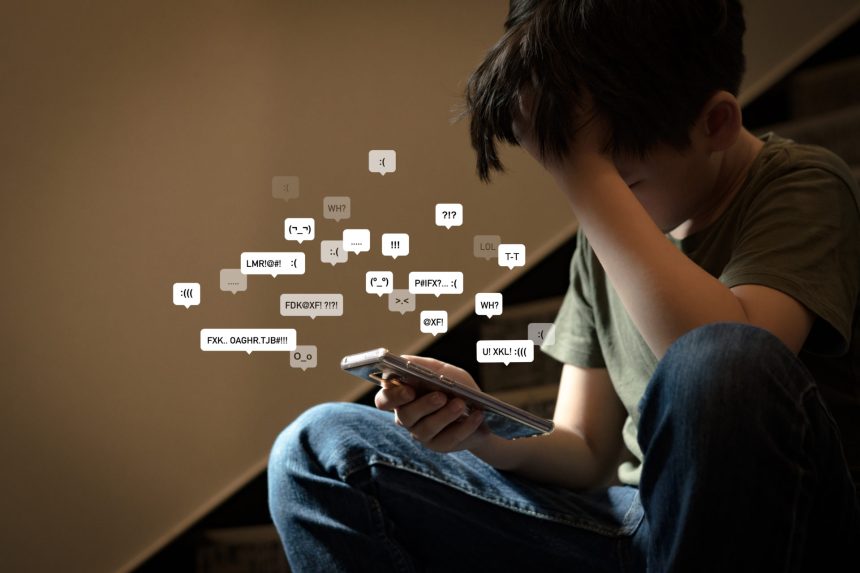The Australian Federal Police (AFP)-led Australian Centre to Counter Child Exploitation (ACCCE) is urging parents to educate themselves about the double meaning of emojis and acronyms to help identify if their children are being targeted by online predators.
The warning follows news that the AFP is urging parents and students returning to school for the start of Term one to understand how to collect evidence of online child exploitation as reports of the crime type reached more than 40,000 last year – almost a 10 per cent increase compared to the previous year.
ThinkUKnow? Parents need to talk to children about online safety
Research conducted by the ACCCE in 2020 revealed only about half of parents talked to their children about online safety. Advice and support for parents and carers about how they can help protect children online can be found on the ThinkUKnow, an AFP-led education program designed to prevent online child sexual exploitation by helping parents, carers, educators and children develop good online habits that protect children and deter offenders.
Reports of child sexual exploitation rising
The ACCCE recorded an increase in reports of online child exploitation from the past financial year, with 40,232 reports received in 2023/22, up from 36,600 in the 2021/22 financial year.
“In making a report of online child sexual exploitation to the ACCCE, we are also asking the public to collect evidence as soon as possible, such as screenshots of any chats, URLs, usernames, profile information, and email addresses. This information is critical to assisting us in investigations,” says AFP Commander Human Exploitation Helen Schneider.
Parents should learn the language of emojis
With many students receiving their own tablets and mobile phones for the first time ahead of their return to school, she says now is the perfect time for parents to have a conversation with their children about their online communication.
“Emojis and acronyms are commonly used in online communication and are usually harmless fun, but some have double meanings that are well known and some that are not,” Commander Schneider says.
“Our recent experience has shown that in some situations emojis like the angry face emoji could be a sign that your child is the victim of online grooming. It is important to stress that in most cases it is probably nothing to worry about but having a healthy relationship with your children about their safety online can help you decide if there’s an issue.”
While Commander Schneider says parents often want to respect the privacy of their children, having honest and open conversations about what they communicate, and what is being communicated to them, could help prevent them falling victims to predators – many who pretend to be children or teens.
“Electronic communication is constantly changing and it can be difficult for parents and carers to keep up,” Commander Schneider says.
“That’s why having a healthy dialogue with your children is the best defence you can have. And remember – if you suspect a child has been the victim of online exploitation, please don’t hesitate to report it to the ACCCE. If you know abuse is happening right now or a child is at risk, call police immediately on 000.”
Top tips for parents and carers
- Keep your child’s personal information including full name and age private
- Ensure the background of photos or videos doesn’t give away your address or location, (and don’t post your location or ‘check in’)
- Avoid posting photos in school uniform
- Only share images of your children with people you know and trust
- For community accounts, consider having a closed group with approved members and ensure you have strong privacy settings in place.
Recent examples of emoji use:
| Emoji/slang | Context |
|---|---|
 | Most commonly seen by ACCCE in chats between offenders and victims of financial sextortion. Usually used multiple times within chats. Example:”I am sending your images now and they will go viral” |
 | Seen by ACCCE in reports of online grooming. Example:”You will like this” |
 | Seen by ACCCE in reports of online grooming. Example:”Want to know what I’m doing?” |
Glossary of emojis, emoticons and acronyms
- Catch a case – Willingness to being arrested and charged for something, often used in relation to sexual desire for someone who is much younger/under age
- CD9 or Code 9 – Parents are around
- DNI – Do not interact, especially as a warning of explicit/sexual content for under 18s
- DM;HS – Doesn’t matter; had sex
- DPW – D*** pictures welcome
- Down in the DM – Using private messages (DM=Direct Message) on social media to ask for nude photos and/or to filter through people to find a sexual encounter
- GNRN – Get Naked Right Now
- GNOC – Get Naked On Camera
- LMIRL – Let’s meet in real life
- LMP – Like my pic
- NIFOC – Naked in front of computer
- NP4NP – Naked Pic For Naked Pic
- P911 – Parent Alert
- PIR – Parent in room
- POS – Parent Over Shoulder
- POV – Point of view, and often indicates that a video is supposed to be filmed as if you’re seeing through someone else’s eyes
- Rule 34 – Any topic can be made into pornographic content
- Snacc/Snack – A person you find attractive
- Sneaky Link – Seeing someone for sex but you want to keep the relationship quiet
- Smash – To have casual sex
- TDTM – Talk dirty to me
- 1174 – Nude club
- 143 – I love you
- 9 – Parent watching
It’s always the right time to report child abuse
AFP Commander Human Exploitation Helen Schneider, who heads the AFP-led Australian Centre to Counter Child Exploitation (ACCCE), said the ACCCE took reports about online child sexual exploitation 365 days of the year.
If you know abuse is happening right now or a child is at risk, call police immediately on 000. If you or someone you know is impacted by child sexual abuse and online exploitation, support services are available.
Once a report has been received by the CPTU, it is assessed by specialised police investigators and triaged to determine if there is enough information to establish an offence has occurred and the most appropriate course of action.
“We cannot stress enough the importance of reports made by parents, carers and children to the CPTU and so as children head back to school for the year, we are using this as an opportunity to reiterate just how crucial these reports are in helping us to identify victims and remove them from harm,” says Commander Schneider.
“We also want to reinforce to victims that if something has happened to you online, you will not be blamed or punished. The report you make could help us to protect others out there who may also be vulnerable to online predators. The safety, care and wellbeing of children is the cornerstone of everything we do at the ACCCE and we are committed to ensuring children are protected online.”








